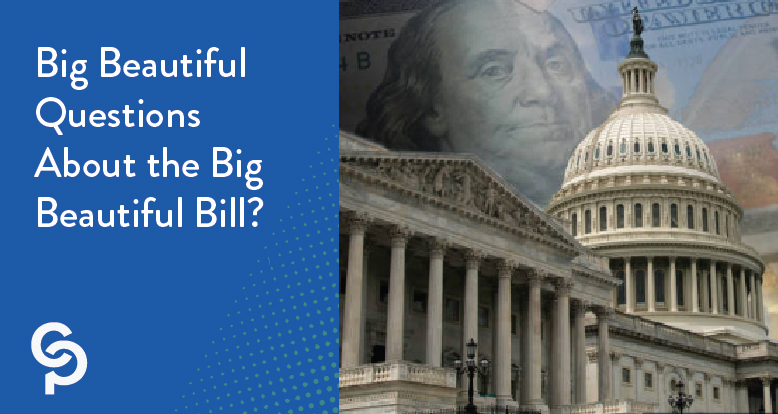
Here’s Part 1 of how the One Big Beautiful Bill Act of 2025, signed into law by President Trump on July 4, will affect businesses.
No tax on tips and overtime. Workers can deduct up to $25,000 of qualified tips ($50,000 for married couples), and $12,500 of qualified overtime ($25,000 for married couples). Once the IRS answers questions regarding how these provisions will be implemented, employers will need to update payroll systems to track and report these amounts separately tax forms.
Medicare eligibility. Although not a direct workplace regulation, the bill imposes stricter Medicaid eligibility rules by requiring individuals to work or participate in approved activities for at least 80 hours per month. This may impact employee health coverage and increase HR’s role in tracking and verifying work hours for Medicaid-dependent staff.
Dependent care contribution limit increase. For the first time since 1986 (excluding the temporary COVID-era increase to $10,500 in 2021), the dependent care FSA (Flexible Spending Account) contribution limit will rise. Starting in 2026, the limit will go from $5,000 to $7,500. Employers will need to update their cafeteria plan documents and related materials, such as benefits summaries, to reflect the new higher limit.
Increase in immigration enforcement. The bill significantly boosts funding for Immigration and Customs Enforcement (ICE) and Customs and Border Protection (CBP), greatly expanding their enforcement capacity. Businesses should have their payroll documents identified and organized in anticipation of an increase in audits, I-9 inspections, and worksite raids by I-9.
Expanded access to Health Savings Accounts. The new law broadens HSA eligibility for three specific groups. First, people who are enrolled in an Affordable Care Act bronze or catastrophic plan; second, people who use direct primary care services; and three, people who receive telehealth and other remote care services before meeting their deductible. This expansion allows more people to open and contribute to HSAs, increasing flexibility and potential tax benefits.
New Form 1099 Rules. Starting with payments made after December 31, 2025, the reporting threshold for payments to individuals in a trade or business—such as those reported on Forms 1099-MISC or 1099-NEC—will increase from $600 to $2,000, with future adjustments for inflation. The backup withholding rules have been updated to match. While this change eases reporting requirements for smaller payments, employers will need to update their accounting systems to reflect the new threshold.

